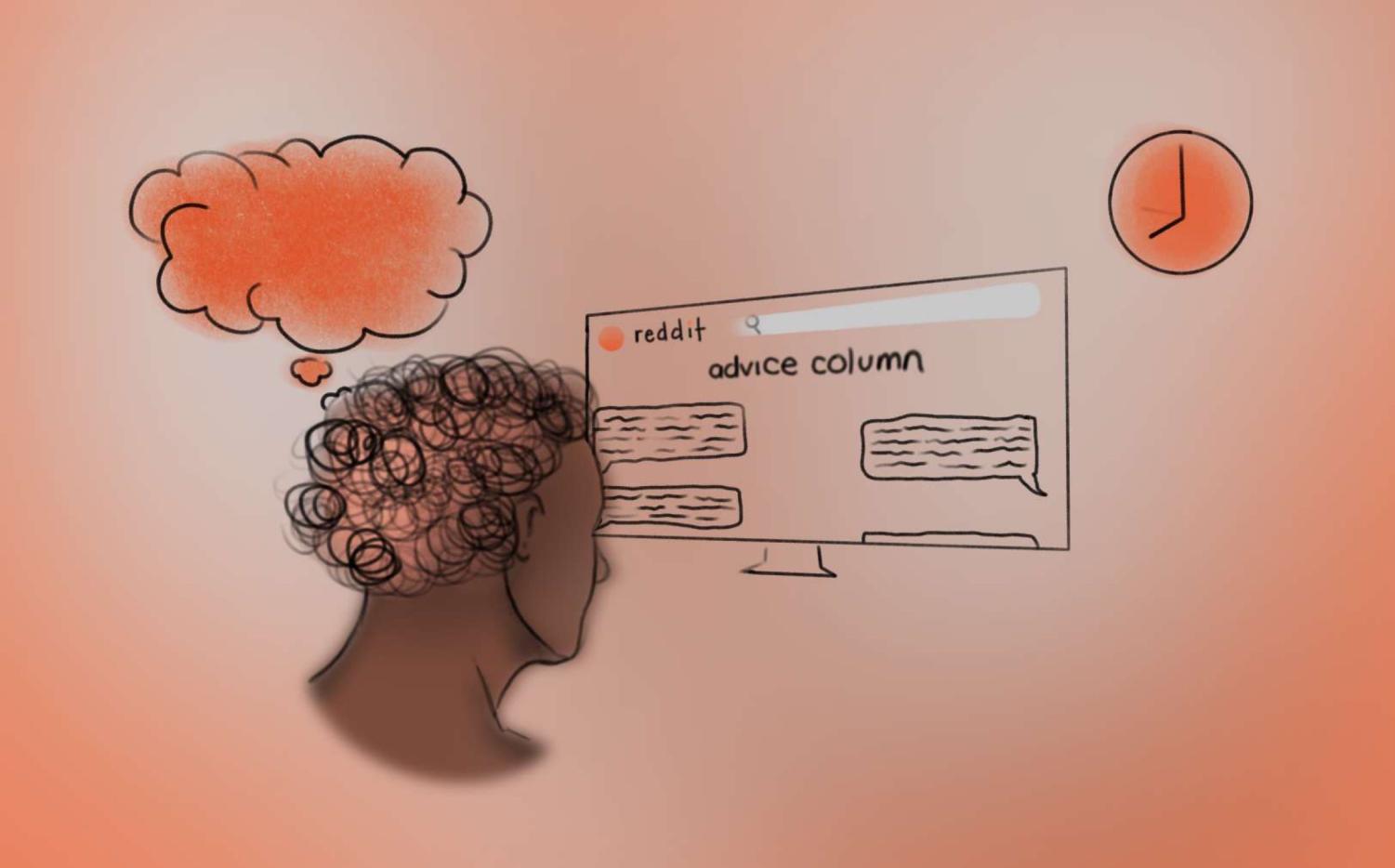There’s a Reddit post for that
March 23, 2022
Ah, the old as time phrase– “don’t talk to strangers”–our parents would preach every moment they could. Fast forward into the teenage years and we log into our phones when there’s any moment of awkward silence and connect with hundreds of strangers on social media.
Close your eyes and remember the last time you thumbed through website after website, finding the most reliable site for the best comedy movies to watch. Instead of asking your parents or friends for recommendations, you turn to Google.
The most popular blogs are WikiHow, Reddit and Quora, in which users can ask any question they have and strangers can provide feedback or advice; the key word is strangers. You can log into these sites under any email address or username, completely concealing your identity.
Alongside millions of internet users, senior Amanda Operana has turned to the web for help various times but remembers one moment in particular.
“I’ve gone to the internet to learn how to curl my hair. I just assumed that my friends didn’t know anything about it at the time. I guess it actually would have been easier to ask them,” Operana said.
Whether it’s for relationship advice, recipes or how to do trigonometry, we’ve all done it. But why not just go to a trusted friend or adult?
Social studies teacher Nicole Lansu shared her thoughts about internet advice. As a parent of a teenager who works with adolescents, Lansu searches for the answer of why they prefer advice from strangers over trusted adults.
“I’m just scared I’ll annoy my teachers or be a burden to them, so I’m just like I’ll just Google it, but I’m taking away that growth and connection with my teacher in doing so,”
— Kelly Kuper
“I have a teenager at home and I’m guessing she Googles stuff instead of asking me, and it may be because she is self-conscious or embarrassed about it. [It] provides an answer, hopefully reliable, but it’s a way to get information without embarrassment or feeling ashamed,” Lansu said.
Lansu thinks of the shift that one may go through as a growing individual. She landed on the idea of the independence adolescents desire.
“Part of being an adolescent is wanting to do things on your own and being independent and wanting to not need your parents. For example, my daughter knows I’m there if she really needs me, but she tries to answer these questions on her own,” Lansu said.
On the other hand, the internet is used most commonly for quick and convenient searches. We can do the arms length reach for our phone and within 30 seconds, we’ll have an answer.
Senior Eileen Harris agrees with how convenient it can be. She shared a time when she was in search of a new macaroni and cheese recipe.
“I didn’t go to my parents or friends because it was just more convenient at the time, just to look it up. I mean my phone was right there and it was much faster to google it than ask someone,” Harris said.
However, there is no quality assurance with the internet. Anyone from anywhere can hop on and type out whatever they want with no consequences. Lansu shared her personal uneasiness with internet advice.
“My fear is that she is reaching out and using a source that is not good when she could just come to me and ask me, but I also respect that figuring things out on her own is part of growing up and that’s a skill I want her to have,” Lansu said. “I always think, ‘are they able to recognize a reliable site and source?’ I think as a teacher, my role is to try and help students identify reliable sources.”
From a different view, going to the internet for advice can be a shield from feeling uncomfortable. Senior Kelly Kuper is familiar with the task of Googling advice. In the past, she has used the internet in search of help for her academics.
“I go to Google in class because I don’t want to ask stupid questions to my teachers. In math class, I’m scared to ask my teacher because I had a teacher in the past who was judgmental about it,” Kuper said. “I’m just scared I’ll annoy my teachers or be a burden to them, so I’m just like I’ll just Google it, but I’m taking away that growth and connection with my teacher in doing so.”
Whether it may be because it’s more convenient or we’re asking an uncomfortable question, going to the internet for advice is the first choice for many.
